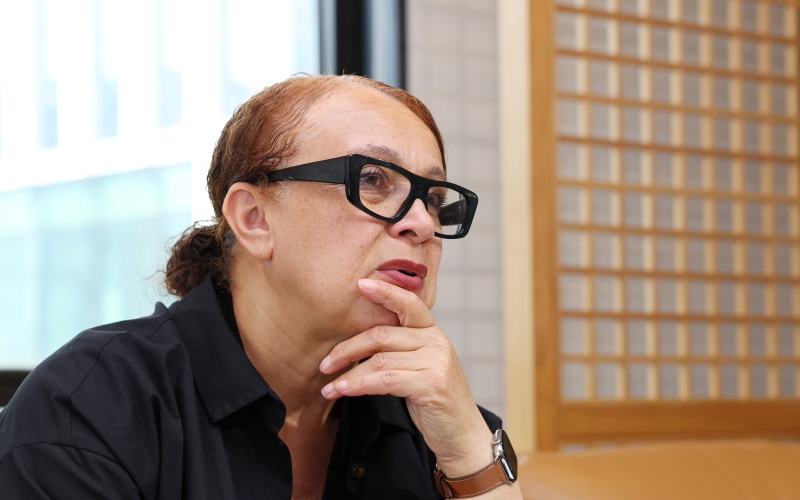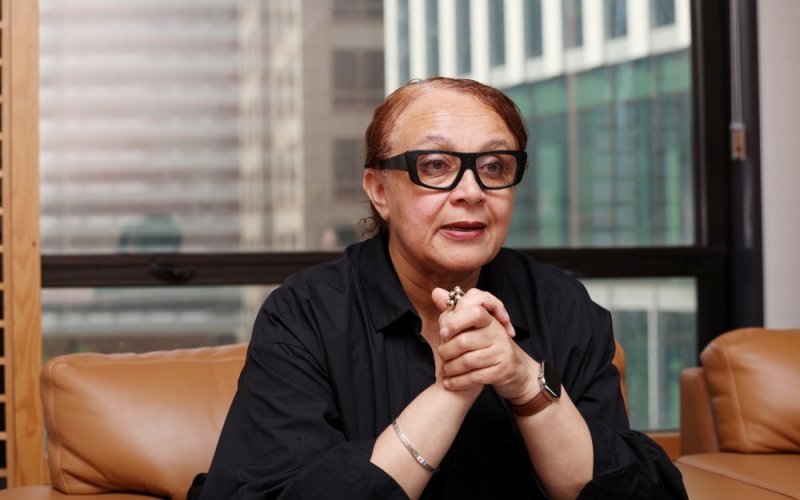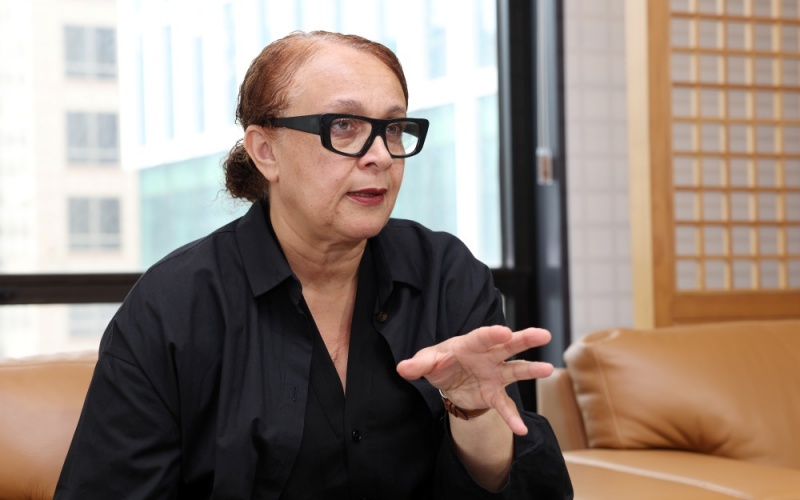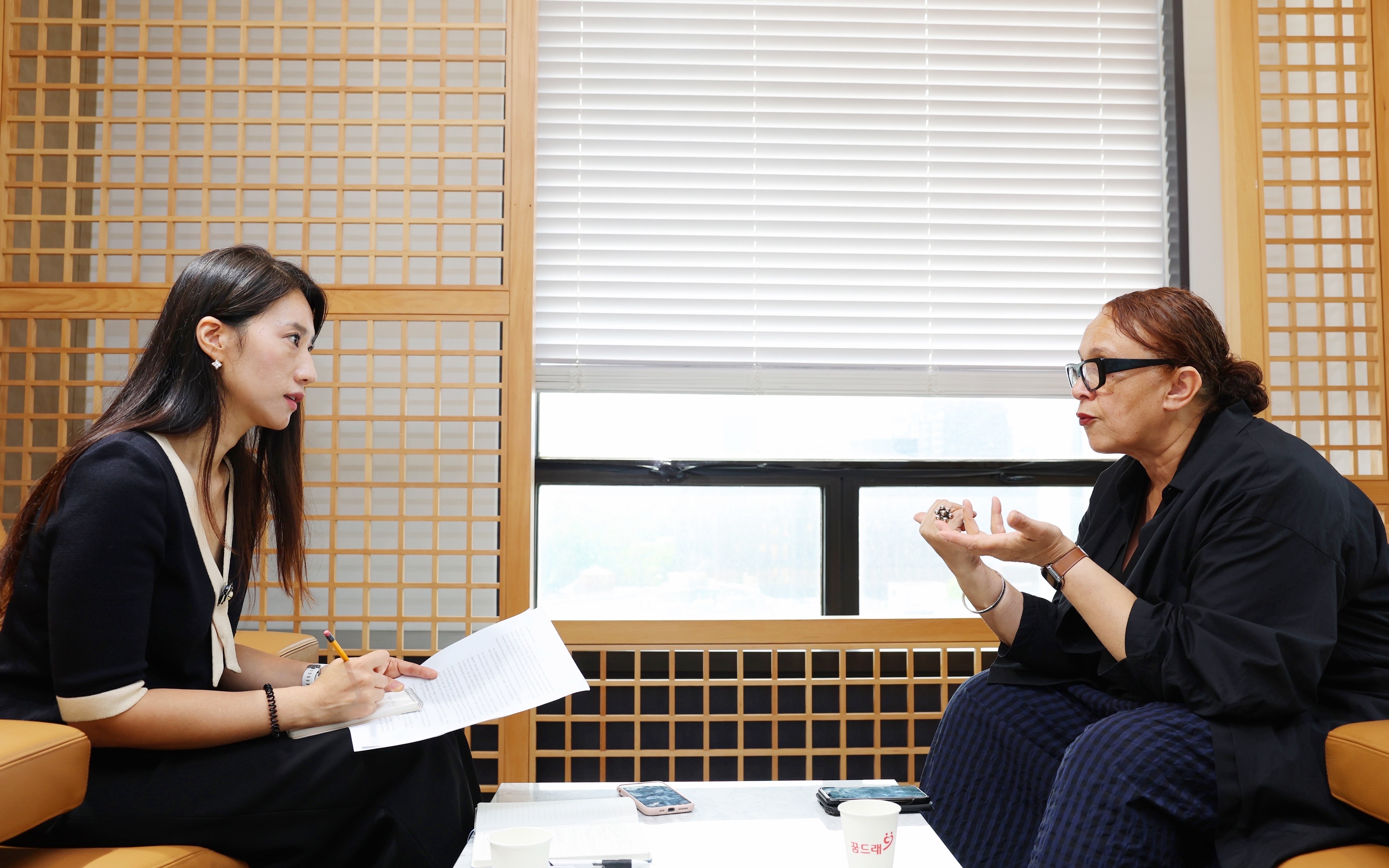
Valerie Chevalier, general director of Opera Orchestre National Montpellier Occitanie Pyrenees Mediterranee of France, on June 9 gives an interview to Korea.net at KOCIS (Korean Culture and Information Service) Center in Seoul's Jung-gu District.
By Jeon Misun
Photos = Lee Jeongwoo
Valerie Chevalier, general director of the Opera Orchestre National Montpellier Occitanie Pyrenees Mediterranee of France, is the first and only woman in French history to lead a national opera orchestra.
Her role requires full responsibility of the troupe's artistic direction and administration.
Chevalier visited Korea last month at the invitation of the K-Fellowship, a program of the Ministry of Culture, Sports and Tourism that brings prominent foreign culture and arts figures to Korea.
Praising the program, she said in a June 9 interview with Korea.net at KOCIS (Korean Culture and Information Service) Center in Seoul's Jongno-gu District, "I have never seen such a well-structured system for cultural and diplomatic exchange at a professional level anywhere else in the world."
She added that her visit helped her feel the strength of Korea's soft power.
Chevalier not only attended performing arts events in Korea such as the Busan International Dance Festival (June 4-8), but also took part in extensive discussions with Korean arts professionals on practical issues including budget structure, personnel management and sustainability of arts organizations. She said her exchanges and talks were a clear testament to the depth and professionalism of Korea's cultural diplomacy.

"I have never seen such a well-structured cultural diplomacy program anywhere in the world," Valerie Chevalier said on June 9 in an interview with Korea.net, commenting on her experience with the K-Fellowship.
25-year relationship with Korean artists
On how her collaboration with Korean artists began, she gave a big smile and said her connection dates back 25 years. This long-standing relationship, she added, goes far beyond simple visits and is the foundation for artistic trust and collaboration.
"Many of the people I worked with back then are now working at prestigious arts education institutions in Korea. Even today, those connections continue through communication and collaboration within the arts community."
During her visit, Chevalier also spoke of collaboration plans including joint productions with the Seoul Metropolitan Opera, choir exchanges, and projects supporting female composers and directors.
Pansori's debut in France
On a project to commemorate the 140th anniversary of bilateral relations next year, she immediately described a plan to present pansori (traditional lyrical opera) in France.
"Pansori is not just folklore. It is a classical art that began in the 12th century, even before Mozart," she said, emphasizing the genre's artistic value and depth.
She seemed intent on introducing French audiences to classical Korean arts from a new perspective as world instead of traditional music.
The performance will feature not only pansori but also visual arts capturing diverse Korean faces. She said she hopes to highlight the many facets of Korean society through a fusion work that crosses the boundaries between tradition and modernity as well as music and visual arts.

On the boundary between art and artificial intelligence (AI), Chevalier said, "AI is a great tool for organizing meetings and handling administrative tasks. But it can't breathe, act or feel emotions. Creativity still belongs to humans."
Expansion of female leadership on and off stage
Chevalier has long championed more female leadership and diversity in the arts, but said what she has experienced is a tough reality.
"Half of the planet is women yet in big positions, their numbers are not well represented," she said. "We need to work harder to change the structure so that more women can take on top leadership roles, rather than being limited to secondary positions such as assistants, collaborators or vice roles."
A core principle of her leadership at an arts organization is collaboration with female creators. This explains her efforts to ensure that women's voices are reflected throughout the artistic process from planning to production, going beyond mere participation.
Needed sustainability in arts management
Facing global challenges such climate change, art can no longer stay neutral. So how can sustainable practices be implemented in arts operations to reduce environmental impact?
"We recycle stage sets and costumes, have switched all lighting to LED and are reducing plastic usage by eliminating plastic bottles," she said. "We also encourage audiences to take the train instead of flying whenever possible."
Chevalier also mentioned exploring practical ways to encourage audiences to reduce their carbon footprint at culture and arts events.
AI is a tool, creation belongs to humans
On fears that artificial intelligence (AI) could threaten the arts, she said, "AI is very useful for organizing meetings and handling administrative tasks, but it cannot breathe, act or feel emotion. Creativity still belongs to humans. It is ultimately up to humans to create."

"If it's not recorded, it doesn't exist," Chevalier (right) told Korea.net reporter Jeon Misun in emphasizing the documentation of Korea's intangible cultural heritage.
No record, no existence
June 9, the day of this interview, was International Archives Day. Chevalier had this to say about keeping records of Korean culture.
"Korea's pansori, calligraphy and oral traditions are global cultural heritage. If it's not recorded, it doesn't exist. If 100 years from now only K-pop remains, it would be a misunderstanding of Korean culture," she said.
Ministry of Culture, Sports and Tourism's K-Fellowship
Launched in 2009 as an international project for cultural exchange, this annual program invites to Korea leaders, artists and policymakers from overseas cultural and arts institutions nominated by Korean Cultural Centers abroad and major organizers of international cultural and arts events in Korea. Participants get the opportunity to experience the Korean culture and arts scene and help form sustainable partnerships between Korea and the invitee's home country.
msjeon22@korea.kr